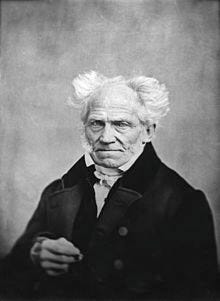I am Kenta. I share my learnings on improving the quality of experience through this newsletter.

“Unless suffering is the direct and immediate object of life, our existence must entirely fail of its aim. It is absurd to look upon the enormous amount of pain that abounds everywhere in the world, and originates in needs and necessities inseparable from life itself, as serving no purpose at all as the result of mere chance.
It is the good which is negative; in other words, happiness and satisfaction always imply some desire fulfilled, some state of pain brought to an end. This explains the fact that we generally find pleasure to be not nearly so pleasant as we expected, and pain very much more painful.”
The German philosopher Arthur Schopenhauer was a prominent pessimist. He didn't believe in happiness.
In Suffering, Suicide and Immortality, He states that pleasure means the end of a state of suffering. Thus, suffering is inevitable in life.
Does pleasure always mean negative?
One description of pleasure comes from Naval's essay, Finding Peace from Mind.
“During your moments of greatest pleasure—whether you're doing a drug, having an orgasm, finding your edge kite-surfing, laughing with a friend or looking at an incredible sunset—your mind goes quiet. It calms down, and that voice in your head goes silent. You achieve a sense of awe, which you might also call beauty, bliss or joy.”
A sense of awe occurs when you concentrate on the present moment.
When you enjoy music in your room or a live concert, you invest your attention in the moment to feel it all.
Art, in general, makes you absorbed in the beauty of the moment.
Sometimes you concentrate intensely on the details of the art. And you forget about everything else.
Doing anything you like is also a form of art. Because you can immerse yourself in the moment when performing the activity.
So, pleasure is a concentration of the present moment.
That means, when we suffer to fulfill a desire, we are trying to attain a state of presentness. And, ironically, we forget about the present to be in the present.
But, we don't have to bring some state of suffering to an end to gain pleasure as long as there is presentness.
The easier way seems to be to find the presentness in every moment in our lives. Then, even if each moment is transient and pleasure seems temporary, our default state would become positive.
This is easier because of the abundance of the opportunity to pay attention to the present in life. But, at the same time, it might be harder because it's less natural than fulfilling desires.
The mind goes quiet in the moment of pleasure.
Someone who can focus on the now in their everyday life can keep their mind quiet at any moment. The constant state of the calmness of the mind makes a peaceful person.
Peace means not chasing some imaginary presentness in the future.
A peaceful person can experience pleasure without suffering because focusing on the present produces joy.
The pleasure from peace is positive because of the absence of suffering to attain it.
But, the pleasure from achieving a desire can sometimes be zero or negative. Because suffering comes with it. The transient nature of pleasure also makes suffering seem unjustifiable.
I like this quote about the relationship between happiness and peace. It’s from Naval’s essay, Happiness Is Peace in Motion.
"'Peace is happiness at rest; happiness is peace in motion.' Someone who's peaceful at rest will end up happy when they do an activity."
When our basis is peace, whatever we do becomes a happy activity.
In Counsels and Maxims, Schopenhauer also talks about the importance of living in the present (to live a bearable life).
"The present alone is true and actual; it is the only time which possesses full reality, and our existence lies in it exclusively. Therefore we should always be glad of it, and give it the welcome it deserves, and enjoy every hour that is bearable by its freedom from pain and annoyance with a full consciousness of its value. We shall hardly be able to do this if we make a wry face over the failure of our hopes in the past or over our anxiety for the future."
It's not wise to forget about the future or the past. But, we find too much of those in our minds more often than too much of the present.
This is practical advice from him, given his pessimistic overview of life. But, he measured life by the degree of freedom from pain. And existence in the present only meant a bearable life for him.
Schopenhauer's essays were interesting reads. When learning new ideas, they sit well with me for some time. But, thinking or learning more about them often makes my understanding seem off. I might be wanting to rewrite editions like this in the future. But, I guess it's part of the learning.
I would like to know your opinion on Schopenhauer's view of the world.
This is my last post for this year. Happy holidays, and have a peaceful new year.
I am on Twitter. Comments, feedback, book/article recommendations, anything is welcome. DM me or reply to this email. Please feel free to spread the word.


Hey, Kenta! You're an amazing writer, every paragraph i read from your texts goes to a punch on the stomach or a gently smile from a friend. Discovering your substack was one of best things that happened to me this year. Thanks for your everything you made me think about and please continue doing this incredible work!
For me, i see Schopenhauer's point of view and i'd agree with him if it wasnt so bad. Trying to be more positive, you know?